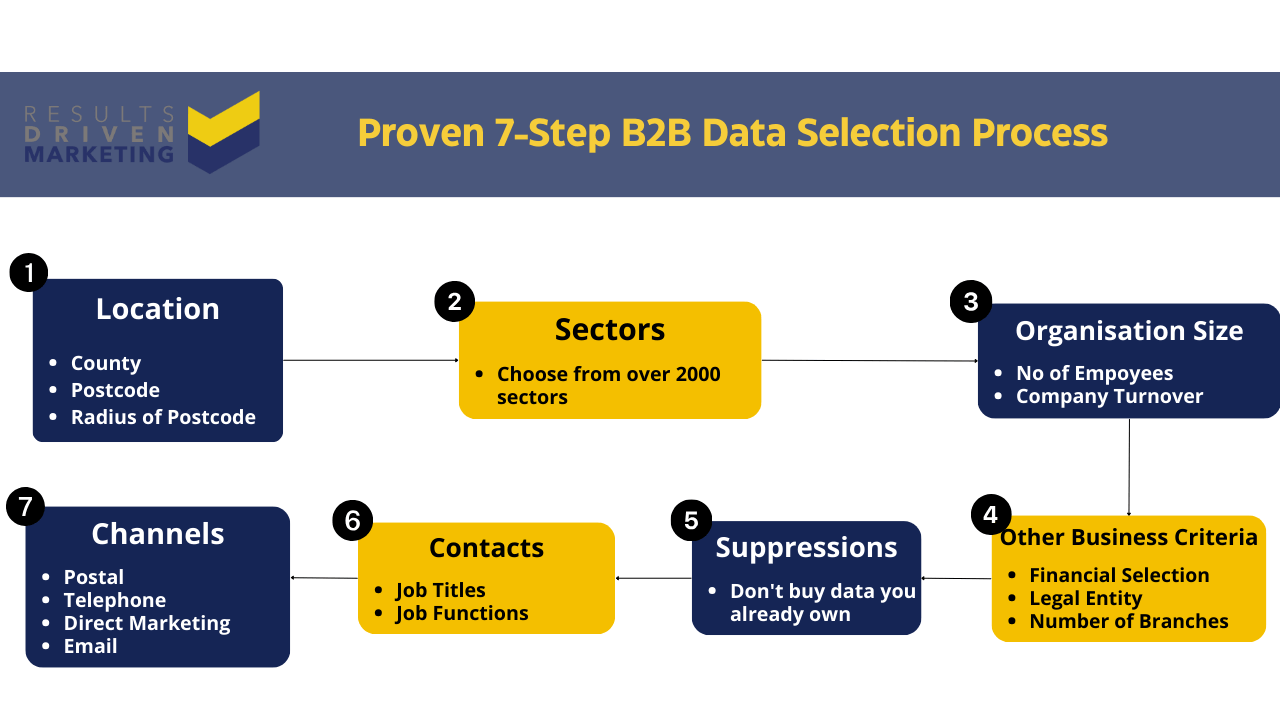
8 Steps To Maintain TPS Compliance
TPS compliance, or the Telephone Preference Service, is a system that lets individuals and businesses opt out of unwanted marketing calls by registering their phone numbers. In simple terms, it ensures that your telemarketing respects the choices of people who’ve decided they don’t want to be bothered by cold calls.
Why is this so important? Well, failing to adhere to TPS compliance can land businesses in serious trouble. Not only are you potentially infringing on privacy, but you’re also putting your company at risk for some hefty fines.
Non-compliance can lead to penalties as high as £500,000, and that’s not even accounting for the damage to your brand’s reputation. Imagine being known as the company that harasses potential customers—no one wants that label!
Staying on top of TPS compliance is not just about avoiding penalties though. It’s also about maintaining trust with your audience. Telemarketing can be a powerful tool, but only when it’s done ethically and responsibly. Consumers today are savvier than ever, and they expect businesses to respect their privacy.
This is where TPS compliance comes in. Ensuring your business adheres to these regulations shows that you take customer consent seriously, fostering goodwill and trust.
In other words….
If your business relies heavily on telemarketing, then it’s vital to integrate TPS compliance into your operations. It’s not just about ticking a box—it’s about maintaining the integrity of your marketing efforts while keeping things legal.
Tools like B2B telemarketing data that we offer at RD Marketing are designed with compliance in mind, helping businesses target the right prospects while adhering to all necessary regulations.
In summary, TPS compliance is crucial for any business engaging in telemarketing. It helps avoid legal trouble, protects your brand image, and demonstrates a commitment to ethical marketing.
By staying compliant, your business can focus on what matters—building lasting relationships with customers.
Don’t forget, it’s equally important to regularly clean your data to remove inactive or non-compliant records. Services like data cleansing ensure your data is accurate and up-to-date, further supporting compliance efforts. Whether you’re in need of email marketing management services or simply looking to refresh your consumer data, staying compliant should always be a priority.
Table of contents:
Step 1: Understand the Basics of TPS
Before diving into the finer details of maintaining TPS compliance, it’s essential to get a clear understanding of what TPS actually is and how it operates. The Telephone Preference Service (TPS) is a register that allows individuals and businesses to opt-out of receiving unsolicited marketing calls.
When someone signs up with TPS, telemarketers are legally required to exclude those numbers from their call lists.
So, how does it work? Essentially, businesses engaged in telemarketing activities need to regularly check their contact lists against the TPS database to ensure they aren’t contacting numbers that have opted out.
This is where having access to clean, compliant telemarketing data becomes critical. For example, at RD Marketing, we provide B2B data and telemarketing data that’s compliant with all the necessary regulations, making sure your outreach efforts are not only targeted but also legal.
Who Needs to Comply?
Now, you may be wondering—do all businesses need to worry about TPS compliance? The short answer is yes, especially if your business engages in any form of telemarketing.
Whether you’re running cold-calling campaigns, conducting surveys over the phone, or even just following up on leads, your telemarketing activities must be TPS-compliant.
This applies to any business that reaches out to individuals or companies via telephone for marketing purposes. And it’s not just large corporations that need to worry. Even small businesses that might only make a handful of telemarketing calls each month are required to comply with TPS rules.
Whether you’re targeting domestic markets or leveraging international B2B email lists for global outreach, compliance is essential.
The Legal Framework: PECR
In the UK, TPS compliance falls under the Privacy and Electronic Communications Regulations (PECR). These regulations govern how businesses can use individuals’ contact information for marketing purposes, and telemarketing is no exception.
PECR enforces strict guidelines that require businesses to respect the preferences of individuals who have opted out of marketing calls.
Non-compliance with TPS and PECR can result in penalties from the Information Commissioner’s Office (ICO), which is why it’s crucial for businesses to stay on top of their legal obligations.
If you’re unsure whether your business is complying, tools like a CTPS checker can help ensure you’re not violating these regulations.
To summarise, TPS compliance is mandatory for any business engaging in telemarketing. It’s essential to understand not only the workings of TPS but also the legal frameworks like PECR that ensure your marketing efforts remain ethical and lawful.
Regularly updating your contact lists, or using services like data cleansing, can help ensure that you don’t accidentally breach TPS regulations.
Step 2: Register with TPS and Regularly Check the Database
So, you’ve decided to stay on top of TPS compliance—great choice! The first practical step is to ensure that your business is registered with the Telephone Preference Service (TPS).
Without this, you won’t be able to verify which numbers have opted out of receiving unsolicited marketing calls. And let’s be honest, the last thing you want is to accidentally breach TPS compliance and end up with hefty fines or worse, damaging your reputation.
How to Register for TPS Access
Registering for TPS is straightforward, but it’s an essential part of staying compliant with the rules. Here’s a quick step-by-step guide on how to get it done:
Visit the TPS website
To get started, go to the official TPS website. Here, you can find the information you need about registering and accessing the TPS database.
Sign Up
If you’re a business or organisation that needs to carry out telemarketing, you’ll need to register and pay a subscription fee to access the database. The subscription level you choose depends on how many numbers you need to check, so it’s scalable whether you’re running a small or large campaign.
Regular Access
Once registered, you’ll be able to download the TPS file. This file should then be regularly compared against your telemarketing lists to ensure you’re not calling any numbers that have opted out.
Tools like CTPS checker can make this process much simpler, especially if you’re handling large volumes of data. It automates the checking process, saving you time and reducing human error.
Why Regular Screening is Crucial
Simply registering isn’t enough. TPS compliance requires that you regularly screen your data against the TPS database. Why? Because people are constantly opting in and out of services, including TPS. A list that was compliant a few months ago may now contain several numbers that are registered with TPS, making it illegal for you to contact them.
For instance, if you’re running a campaign using direct mail data or telemarketing data, you need to be absolutely certain that your data is current and compliant. Screening once and forgetting about it just won’t cut it—consistent checks are key to remaining on the right side of the law.
Tools and Resources for Compliance
Luckily, there are various tools and services that can help businesses automate the screening process and stay on top of TPS compliance. At RD Marketing, we not only offer clean, compliant email address list data, but also provide solutions to help businesses screen their telemarketing data regularly.
If you’re handling large volumes of consumer or B2B data, using tools like a CTPS checker is a must. This can streamline the process and minimise any risks of non-compliance. And, if you’re unsure about the quality or cleanliness of your data, services like data cleansing can ensure that your contact lists are always up-to-date, compliant, and effective for outreach.
By registering for TPS access and committing to regular checks, you’ll not only maintain TPS compliance, but you’ll also be safeguarding your business against penalties and fostering trust with your potential clients.
Step 3: Train Your Sales and Marketing Teams
Ensuring TPS compliance across your business isn’t just a one-person job—it requires everyone in your organisation, particularly your sales and marketing teams, to be on the same page.
Internal training plays a vital role in embedding a culture of compliance, and it’s essential that all team members understand what TPS compliance entails and why it’s necessary.
Why Internal Training Matters
Your sales and marketing teams are typically the front lines when it comes to engaging with customers, whether through phone calls, email campaigns, or direct mail.
If they aren’t fully aware of the regulations surrounding TPS compliance, your business could easily slip into non-compliant practices. That’s why dedicating time to educate your team on the rules of TPS and how to apply them in daily operations is absolutely critical.
By equipping your team with a solid understanding of TPS compliance, you’re not only ensuring legal adherence but also helping them avoid costly mistakes that could tarnish your brand’s reputation. Imagine running a successful telemarketing campaign only to find out that your team unknowingly contacted TPS-listed numbers.
The fines, bad publicity, and potential loss of customer trust could undo all your hard work.
At RD Marketing, we provide compliant telemarketing data that helps reduce these risks, but training your team is still key to long-term success.
Tips for Educating Your Team on TPS Regulations
Here’s how you can ensure your teams are well-versed in TPS compliance:
Host Regular Compliance Workshops
Make it a habit to conduct periodic training sessions. This could involve inviting a compliance expert to discuss the importance of TPS compliance and provide updates on any changes in regulations. Workshops are a great way to ensure everyone from new hires to seasoned employees understands the impact of non-compliance.
Provide Clear, Written Guidelines
Having written policies that outline what TPS compliance means for your business can be extremely helpful. These guidelines should detail how to check numbers against the TPS database, when consent is required, and what to do if a mistake occurs. Offering a step-by-step process makes it easier for employees to follow.
Leverage Online Training Tools
If your teams are spread across different locations or working remotely, online training modules can be highly effective. You can create custom modules that focus specifically on TPS compliance and related regulations such as PECR. Incorporate quizzes or tests to make sure the training sticks.
Regularly Update Training Materials
TPS regulations can evolve, so it’s essential to keep your training materials updated. For example, if your business starts expanding internationally and using an international email list, the legal requirements may differ across regions. Keeping your team informed about these changes ensures no one makes an unintentional mistake.
Avoiding Common Mistakes
Even with training, there are a few common scenarios where confusion can arise. Here’s how to avoid them:
- Assuming All Data Is Compliant
Just because you’ve purchased a consumer data list or even B2B data doesn’t mean it’s automatically TPS-compliant forever. Make sure your team understands the importance of regularly checking data and why purchasing fresh, up-to-date data is critical to staying compliant. - Forgetting to Regularly Screen Numbers
As mentioned earlier, TPS compliance requires ongoing checks. Some teams may mistakenly believe that if a number was compliant once, it’s good for future use. This can lead to accidental breaches. Using a CTPS checker can help automate this process, so no one falls behind. - Confusing Consent Rules
Your team should be crystal clear on what counts as explicit consent. In telemarketing, consent must be clear and informed. Ensure your team knows that vague agreements or implied consent isn’t enough to bypass TPS compliance.
Incorporating these training strategies and tools into your team’s workflow will go a long way in ensuring full TPS compliance. And if you’re ever unsure, services like data cleansing can help remove any outdated or non-compliant records, giving your team confidence that they’re working with clean, compliant data.
Step 4: Automate Compliance with CRM and Telemarketing Software
Staying on top of TPS compliance can feel like a full-time job, especially when you’re dealing with large volumes of data and numerous outbound calls. That’s where automation comes in. By integrating TPS compliance checks into your CRM or telemarketing software, you can streamline the entire process, reduce manual errors, and focus on what matters most—growing your business.
How CRM and Software Tools Simplify Compliance
The right CRM (Customer Relationship Management) system or telemarketing software can be a game-changer when it comes to maintaining TPS compliance.
These platforms can automate the process of screening telephone numbers against the TPS database, ensuring that you’re not manually sifting through lists or missing any newly opted-out numbers.
Here’s how it works:
Automated Data Screening
Modern CRMs often come with features that allow you to automatically screen your contact lists against the TPS database. For example, when new data is uploaded—whether it’s B2B data, consumer data, or even international email lists—the CRM checks it against the latest TPS list in real-time. This ensures that only compliant contacts are added to your marketing funnel.
Real-Time Compliance Alerts
Some telemarketing software platforms provide real-time alerts if a number you’re about to call is registered with TPS. This feature not only ensures TPS compliance but also saves your team time by preventing them from dialing non-compliant numbers. If you’re running frequent telemarketing campaigns, this type of functionality is crucial.
Seamless Data Integration
Telemarketing software or CRM systems can integrate with other tools like a CTPS checker for added compliance, especially if you’re reaching out to corporate clients. Integrating these tools reduces the need for manual checks and makes the whole process more efficient.
Platforms and Features to Look For
When selecting a CRM or telemarketing software, it’s important to prioritise platforms that offer strong compliance features. Here are some key aspects to look for:
- Automated TPS and CTPS Screening
Ensure the platform has built-in TPS compliance features that allow automated, regular screening against the TPS and CTPS lists. This will help maintain compliance effortlessly, whether you’re using telemarketing data or a direct mail data list. - Customisable Compliance Settings
Some businesses may have different compliance needs depending on their location or industry. Look for a system that allows you to customise settings based on specific regulations, ensuring you remain compliant no matter the audience you’re targeting. - Real-Time Updates and Alerts
Real-time alerts about changes in TPS status are incredibly helpful. These alerts can notify your team instantly if someone registers with TPS after they’ve been added to your contact list, reducing the chance of accidentally contacting someone who has opted out. - Data Cleansing Features
A good CRM should also have integrated data cleansing services to help keep your contact lists accurate and up to date. Clean data means better results and fewer compliance headaches.
Reducing Manual Errors with Automation
One of the biggest benefits of automating TPS compliance is the reduction in manual errors. Manually checking thousands of numbers against the TPS database is time-consuming and prone to mistakes. Automation not only speeds up the process but also ensures that human error is minimised, which is essential when it comes to something as critical as compliance.
Plus, using compliant email marketing management services or automated telemarketing tools allows you to focus on strategy and outreach rather than data verification. This saves your team valuable time and resources, letting them concentrate on converting leads and closing deals.
In summary, automating TPS compliance using CRM and telemarketing software is a smart move for any business looking to scale its outbound efforts while staying within the legal boundaries.
Not only does it help you avoid costly mistakes, but it also frees up your team to focus on what they do best—growing your customer base. With the right tools, services like data enrichment become even more effective, ensuring your outreach is always compliant and optimised for success.
Step 5: Obtain Clear Consent from Customers
One of the most crucial aspects of TPS compliance is obtaining clear and informed consent from your customers before making any marketing contact.
It’s not enough to assume that a customer might be interested in your product or service—under the TPS rules, you need explicit consent to call them for marketing purposes, especially if their number is registered on the TPS database.
What Qualifies as Clear and Informed Consent?
For consent to be valid under TPS regulations, it needs to be:
- Explicit: The customer must knowingly agree to receive marketing calls from your business. This means that consent cannot be implied or assumed.
- Informed: The customer should fully understand what they are consenting to. They must be made aware of how their phone number will be used, the purpose of the contact, and which organization will be calling them.
- Freely Given: Consent should not be forced or coerced in any way. Customers should have the freedom to say no without facing any negative consequences.
- Specific: General consent for marketing is not sufficient. The consent must specifically cover telemarketing, which means a blanket agreement for all types of marketing communication won’t suffice.
For example, if you’re using telemarketing data from a provider like RD Marketing, you need to ensure that all numbers have given consent to receive marketing calls. This is not only important for staying compliant but also for building trust with your prospects.
How to Obtain and Record Consent
Ensuring TPS compliance means that you have to not only obtain consent but also maintain a reliable record of it. Here are some steps your business can follow to do this legally:
Use Clear Opt-In Forms
When asking for consent, especially through online forms or paper agreements, make sure that your opt-in process is clear and unambiguous. The customer should be fully aware that they are agreeing to receive marketing calls. Avoid pre-ticked boxes—customers should actively check a box to give consent.
Whether you’re gathering data through a consumer data list or an email address list, it’s essential that the consent process is clearly documented.
Provide a Clear Privacy Notice
A transparent privacy notice should always accompany the consent request. This notice must outline how their data will be used, stored, and shared. If the customer understands what they are signing up for, the chances of disputes regarding consent later on are reduced.
Keep Detailed Records of Consent
Documenting consent is just as important as obtaining it. Keeping a digital or physical record of when, how, and what the customer agreed to is essential for proving compliance if your business is ever questioned. Using tools like CRM systems can automate this process, allowing you to store and manage consent records efficiently.
Offer an Easy Opt-Out Option
As part of the TPS compliance process, you must always give your customers the option to withdraw their consent at any time. Make sure there is a simple and clear way for them to opt-out of receiving future marketing calls.
Opt-In Strategies for Telemarketing That Don’t Conflict with TPS Compliance
Finding the right balance between compliance and effective marketing is important. Here are a few TPS compliance-friendly opt-in strategies that can help your telemarketing efforts without violating the rules:
- Lead Nurturing Campaigns: Before making telemarketing calls, engage with potential leads through emails, direct mail, or content marketing. These pre-engagement strategies can encourage them to opt-in for calls later, ensuring you’ve secured their explicit consent for future communication.
- Event or Webinar Registrations: If you’re hosting a webinar or live event, include a checkbox asking attendees if they’d like to receive follow-up calls for more information. This is a proactive way of gaining consent from engaged prospects without being pushy.
- Incentivised Opt-Ins: Offer customers a reason to opt in, such as access to exclusive deals or free consultations. As long as you’re clear about how their data will be used and they agree to receive calls, this is an effective and TPS-compliant way to build your list.
At RD Marketing, we can help you navigate the complexities of obtaining and maintaining compliant data through services like data cleansing and data enrichment. By working with reliable and up-to-date data, you can be confident that your marketing efforts align with TPS compliance while still delivering results.
In summary, clear and informed consent is a cornerstone of TPS compliance. Following these guidelines ensures that your business operates within the law, protects consumer rights, and builds trust with your prospects.
Step 6: Establish a Clear Policy for Handling Complaints
No matter how diligent you are about maintaining TPS compliance, there may come a time when a complaint arises. Whether it’s a misunderstanding or a legitimate grievance, how you handle these situations can significantly impact your business.
Having a formal complaint-handling process in place ensures that you address compliance-related issues quickly, professionally, and with minimal disruption to your operations.
Why a Complaint-Handling Process Is Essential
Handling complaints isn’t just about avoiding fines—it’s also about preserving your brand’s reputation. A well-structured complaint-handling process allows your business to respond swiftly and maintain a positive relationship with your customers or prospects.
It demonstrates that you take TPS compliance seriously and are committed to rectifying any issues that arise.
By setting up a clear policy, you minimise confusion and provide a pathway for resolving concerns without delays. Complaints can happen, especially if you’re working with large datasets like telemarketing data or email address list data. But by being proactive and prepared, you can turn a potentially negative situation into a chance to showcase your professionalism.
Tips for Effective Complaint Handling
Here’s how businesses can create a robust process for managing compliance-related complaints:
Create a Centralised Complaint Process
Make sure all complaints are funneled through a centralised system. This could be an internal CRM or a designated compliance officer.
Having a clear point of contact for complaints ensures that nothing slips through the cracks. For instance, if someone complains about receiving a call despite being registered with TPS, this issue can be logged and tracked until resolved.
Also, businesses that regularly handle large volumes of consumer data or B2B data may benefit from CRM tools that automate the process of logging and categorising complaints.
Acknowledge and Respond Promptly
Timing is everything when it comes to complaints. Acknowledging the complaint quickly—even if you don’t have a solution yet—demonstrates that your business values the concerns of the person involved. An immediate response gives you time to investigate the issue while maintaining goodwill. It also shows that TPS compliance is top of mind in your day-to-day operations.
Investigate the Complaint Thoroughly
Ensure that all complaints are taken seriously and investigated thoroughly. Whether the issue stems from a simple mistake—like missing a screening—or a larger data-related issue, taking the time to understand the cause of the complaint is critical.
In some cases, you may need to recheck your records using tools like a CTPS checker to confirm whether the number was registered with TPS at the time of the call.
As well as….
Provide Clear Communication and Resolution
Once the investigation is complete, communicate your findings and any necessary corrective actions to the individual. If there was an error on your part, apologise and provide a clear resolution.
This could include removing their data from your call list or issuing a formal assurance that future calls will not occur. Clear, empathetic communication is key to maintaining trust even after a complaint.
Regularly Review and Update Your Process
As regulations around TPS compliance evolve, so too should your complaint-handling process. Make sure to regularly review and update your policies to account for any changes in compliance laws or your internal systems. This will help prevent future complaints and ensure ongoing compliance with both TPS and broader privacy laws.
Turning Complaints into Opportunities
A formal process for handling complaints doesn’t just protect you—it can also improve your business practices. By actively addressing complaints, you gain insights into areas where your TPS compliance could be tightened. You might discover gaps in your data processes, or even realise the need for services like data cleansing or data enrichment to maintain accurate contact lists.
At the end of the day, maintaining strong TPS compliance while handling complaints professionally can enhance your brand image. It shows that your business values transparency, ethics, and customer satisfaction. By putting a solid system in place, you can minimise risks and turn any negative feedback into a positive learning experience.
By working with compliant data, whether through direct mail data or managed email marketing services, you’re already one step ahead. The final piece of the puzzle is ensuring your response to any issues reflects your commitment to doing things the right way.
Step 7: Conduct Regular Internal Audits
To maintain TPS compliance effectively, it’s not enough to just set up the right systems—you also need to regularly check that those systems are working properly.
This is where internal audits come into play. Regular audits ensure that your business is adhering to TPS compliance protocols and that no one is slipping through the cracks. Audits provide an opportunity to identify any gaps, address potential risks, and make sure that your telemarketing practices stay legal and ethical.
Why Regular Audits are Necessary for Ongoing Compliance
Even with the best intentions and systems in place, human error or outdated processes can still lead to lapses in TPS compliance. Over time, phone numbers may not be correctly screened, or your team might unknowingly overlook changes in the TPS regulations. That’s why conducting regular internal audits is essential.
Audits allow you to:
- Catch potential errors early before they lead to non-compliance.
- Verify that your data is up to date and compliant with the TPS database.
- Ensure your CRM or telemarketing software is still functioning correctly and is integrated with TPS screening tools.
- Stay aligned with changing regulations that might impact your telemarketing strategies.
By making audits a routine part of your operations, you can prevent small issues from escalating into costly penalties or fines.
TPS Compliance Audit Checklist
To make sure your audits cover all the necessary ground, here’s a checklist of what you should include:
Data Screening Processes
Ensure that your systems are regularly screening all telephone numbers against the TPS database. If you’re handling large volumes of B2B data or consumer data, your process for checking this data should be automated and reliable. Review whether a CTPS checker is being used, particularly if you’re making calls to corporate contacts.
CRM and Software Integration
Check that your CRM and telemarketing software are fully integrated with your compliance checks. Does your software flag numbers that are registered with TPS? Are there real-time alerts? Review the settings and ensure no numbers are being missed.
Training and Knowledge Updates
Review whether your sales and marketing teams are consistently applying TPS compliance rules. Have there been any lapses in training? Make sure that team members are well-informed on the latest TPS regulations. Regularly updating training sessions is crucial to ensuring everyone understands their compliance responsibilities.
As well as….
Complaint Handling Process
Audit your complaint handling system to verify that any compliance-related complaints are being tracked and resolved efficiently. This should include reviewing how complaints are logged, how quickly they are addressed, and whether any changes have been made as a result. A robust complaint-handling process, as discussed in Step 6, is vital.
Data Accuracy and Cleansing
Are you maintaining accurate and up-to-date data? Regularly checking your data for compliance issues is key to avoiding problems down the line. Utilise data cleansing services to remove inaccurate or outdated information from your databases, ensuring you’re working with the cleanest possible lists.
Consent Records
Audit your methods for obtaining and recording consent. If you’re running campaigns with direct mail data or email address lists, double-check that the appropriate consent records are being kept, particularly for contacts who have opted in for communication.
How Often Should You Perform Audits?
The frequency of your internal audits largely depends on the size and scale of your telemarketing operations, but as a rule of thumb, businesses should aim to conduct audits at least quarterly. Larger organisations or those handling high volumes of international email lists and telemarketing data may benefit from monthly audits to stay on top of changes in data and regulations.
In addition to regular audits, you should also conduct an audit:
- Whenever a major regulatory change occurs that could impact your telemarketing practices.
- After any major campaign, to review whether your compliance systems held up under pressure.
- If a complaint is made, to ensure that similar issues don’t arise again.
By conducting these regular internal audits, your business will be able to maintain high standards of TPS compliance and avoid costly errors. If you need support with managing your data, our team at RD Marketing offers a range of services like data enrichment and telemarketing list management to ensure your compliance remains airtight.
Step 8: Stay Informed About Regulatory Changes
When it comes to TPS compliance, staying informed about changes in regulations is crucial. Laws around telemarketing, data privacy, and consumer protection are constantly evolving, and what’s compliant today might not be tomorrow. Keeping up with these changes is key to ensuring your business remains on the right side of the law, protects its reputation, and avoids penalties.
Why Staying Updated is Critical
Telemarketing regulations, including TPS compliance, aren’t static. They change in response to consumer concerns, legal developments, and shifts in technology.
If your business is unaware of a new rule or update, it could unintentionally violate regulations—leading to fines or other legal consequences. A single misstep could see your company facing penalties or losing the trust of its customers, both of which are damaging to long-term success.
By staying informed, you ensure that your telemarketing campaigns remain effective and compliant. Whether you’re using B2B data or reaching out with email address list data, being on top of the latest regulations means you can confidently target your prospects without fear of breaking the rules.
Resources for Staying Updated
So, how do you make sure your business is always informed about the latest developments in TPS compliance and related regulations? Here are a few reliable resources:
Official TPS Website
The official TPS website is the go-to source for updates directly from the Telephone Preference Service. Regularly checking this site will keep you informed about any changes to the rules and requirements for compliance.
Information Commissioner’s Office (ICO)
In the UK, the ICO is responsible for enforcing telemarketing laws, including TPS and the broader Privacy and Electronic Communications Regulations (PECR). Their website offers insights into new regulations, compliance advice, and enforcement actions, helping you stay informed.
Industry Associations and Groups
Industry bodies focused on marketing, data privacy, or telemarketing are excellent sources for news and updates. Many of them provide newsletters, webinars, and best practice guides to keep businesses aligned with the latest compliance standards.
And also…
Telemarketing Software Providers
Many telemarketing and CRM software platforms include compliance updates within their systems, ensuring you’re notified whenever there are changes to TPS compliance. These platforms may offer real-time updates or automated alerts that keep your data in line with the latest legal requirements. This is especially valuable when handling high volumes of telemarketing data or consumer data.
Specialised Data Providers
Working with a data provider that specialises in compliance can be a great way to stay informed. Providers like RD Marketing ensure that the international email lists or direct mail data you purchase are always compliant with the latest regulations. Additionally, we offer services such as CTPS checker to help you verify corporate numbers.
News Alerts and Legal Blogs
Subscribing to news alerts on telemarketing or data privacy can help you stay on top of regulatory changes. Many legal blogs also cover updates on compliance laws, giving you an easy way to follow new developments.
Risks of Not Staying Informed
Failing to stay up to date with TPS compliance can lead to significant risks for your business. Some of the potential consequences include:
- Fines and Penalties: Regulatory bodies like the ICO can impose hefty fines for non-compliance, especially if you’re found to be contacting numbers registered with TPS. The penalties can run into thousands, even hundreds of thousands of pounds, depending on the severity of the violation.
- Reputation Damage: In today’s world, consumers value privacy and expect companies to respect their preferences. Violating TPS compliance can erode trust, which is difficult to rebuild. If your business is seen as unethical or intrusive, it could lead to a loss of customers.
- Operational Disruptions: Being unaware of regulatory updates might force you to halt your telemarketing campaigns suddenly to address compliance issues. This could lead to missed opportunities and operational slowdowns.
And….
By staying informed and proactive, you can avoid these risks and ensure that your business is always operating within the boundaries of the law.
In conclusion, keeping up with TPS compliance and related regulations is a continuous process. It requires vigilance and a commitment to ongoing learning, but the benefits—avoiding fines, maintaining your brand’s reputation, and running smooth, compliant telemarketing campaigns—are more than worth the effort.
For businesses needing assistance in maintaining compliance, services like data enrichment and data cleansing offered by RD Marketing can help ensure your data is always in top shape, ready for use.
Maintaining TPS compliance is more than just a legal requirement—it’s a vital part of running an ethical and effective telemarketing strategy. By following the eight steps outlined in this article, businesses can not only avoid the hefty penalties and fines associated with non-compliance but also foster trust and credibility with their audience.
TPS compliance shows that your business respects consumer preferences and privacy, which is essential in today’s market.
Hence….
From understanding the basics of TPS compliance to automating your processes, training your team, conducting regular audits, and staying updated on regulatory changes, every step plays a crucial role in building a robust compliance strategy. By integrating these practices into your operations, you safeguard your brand and enhance the effectiveness of your marketing efforts.
At the end of the day, staying compliant doesn’t just protect your business—it allows you to engage with customers in a way that builds long-term loyalty. Whether you’re using telemarketing data, direct mail data, or running campaigns with email address lists, ensuring TPS compliance should always be at the forefront of your telemarketing strategy.
If you’re looking for further guidance or need help managing your compliance processes, don’t hesitate to reach out. At RD Marketing, we provide a range of services to keep your data clean and compliant, including CTPS checkers, data cleansing, and data enrichment.
We also offer international email lists and B2B data that align with the latest regulations, ensuring your marketing efforts are both effective and lawful.
Ready to take the next step? Subscribe to updates on the best practices for TPS compliance or contact us for a consultation on how to optimise your telemarketing strategy for compliance and success. Together, we can help you stay ahead of the curve and build a more ethical, effective marketing approach.
Who are We?
Dedicated to lead generation, Results Driven Marketing provides myriad services SMEs can trust to deliver results.
Our marketing lists are guaranteed accurate to industry high standards, and GDPR compliant and our experience team means that if you are looking to buy data, they make them totally bespoke and highly relevant whether you are looking for email lists, direct mailing lists , international data or telemarketing lists
Our email marketing software is highly rated. Responder provides the automation tools you need to put your marketing on autopilot.
We also supply email marketing solutions with our email marketing platform.
Have a look a what our happy clients have to say about us on our testimonials page
Call us today on 0191 406 6399 to discuss your specific needs.
Results Driven Marketing
info@rdmarketing.co.uk
Contact Us
0191 406 6399








